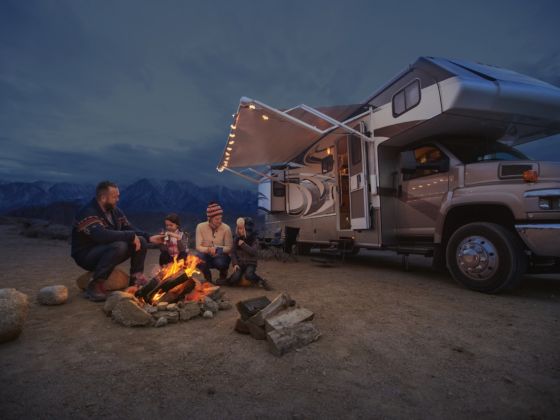My kids hop off the bus after school, race inside, and have just one question: “Are we going camping?” Since purchasing an RV about five years ago, this has become the norm for Friday afternoons. My four boys — ages 7,5,3, and 1 — have gone camping as long as they can remember, spending spring, summer, and fall weekends in our RV’s bunk beds, cooking s’mores, exploring creeks and lakes, and making “camper friends” who they now call their “cousins.” (We think they’ll be lifelong pals.)
As a child who RV’d, I saw immense benefits, and I knew I wanted to instill the same love for the outdoors in my kids. We started RVing when my oldest son was around three years old and have experienced pregnancies, breastfeeding, toddlerhood, and more in our camper. Our kids have loved it at every stage.
What’s more, as a large family with young children, RVing is not just an easier and more comfortable way for us to travel — it’s honestly the best. I recommend every family with an itch for adventure to try RVing, because parents and kids will absolutely fall in love with it. To see what I mean, read on.
1. They want and need to “unplug.”
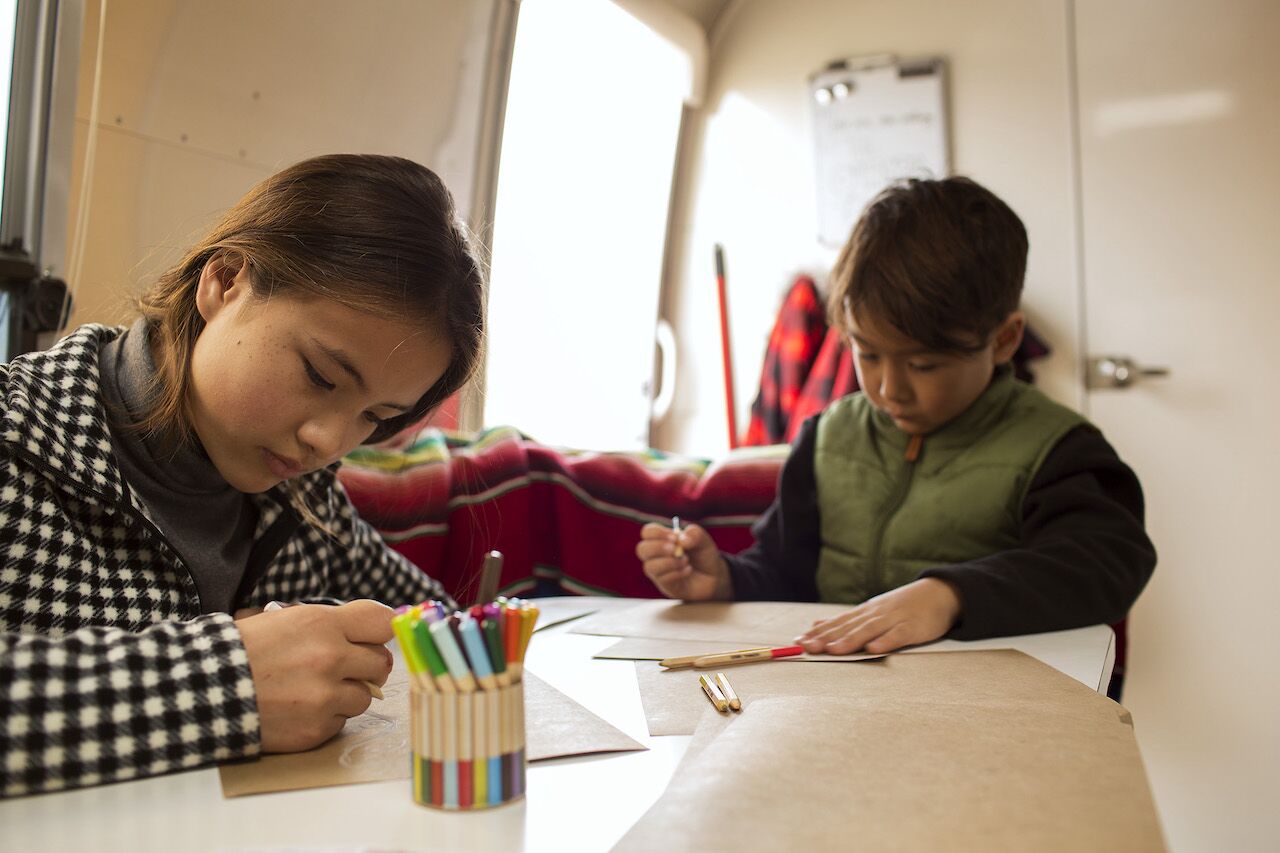
Photo: Go RVing
Trust me, kids crave time away from screens, whether they admit it or not. Camping demands that, as some campgrounds don’t even have Wi-fi access. If we even bring the kids’ iPads, we notice that they quickly get bored and opt for exploring around outside or coloring on the picnic table. I see how their mood improves when they spend more time off-line.
Tip: Don’t push the whole “we’re-camping-so-no-screen-time” vibe. When the great outdoors lie just beyond their doorstep, kids will naturally play outside. You don’t have to strip the TV out of your camper to prove a point (plus it’s a lifesaver if it pours all weekend).
2. They’ll get out of their comfort zones and learn new skills.
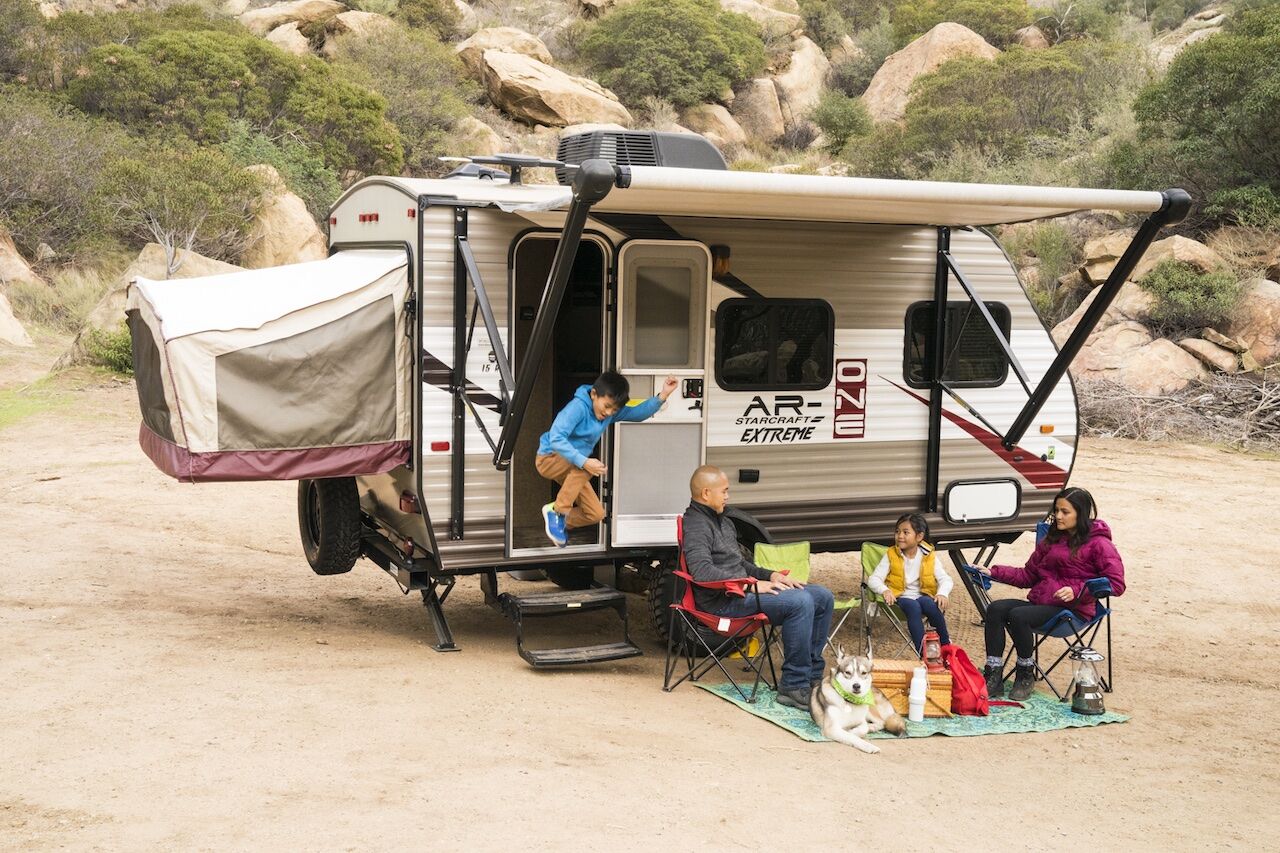
Photo: Go RVing
RVing gives kids access to nature, situations, people, and places they don’t normally encounter, which in turn can help them develop into more empathetic adults. Thanks to regular camping trips, my oldest — who’s rather shy — has come out of his shell. He’s improved his basic social skills by chatting with neighboring campers when his baseball rolls under their RV, or working up the nerve to ask other kids to play.
Tip: Moments and situations to meet new people will come organically from RVing, so don’t worry about elaborate planning. A neighboring RV family might become their next camping besties, or experiencing nature on a hike might lead to new discoveries.
3. You won’t hear “are we there yet?” on short adventure weekends.
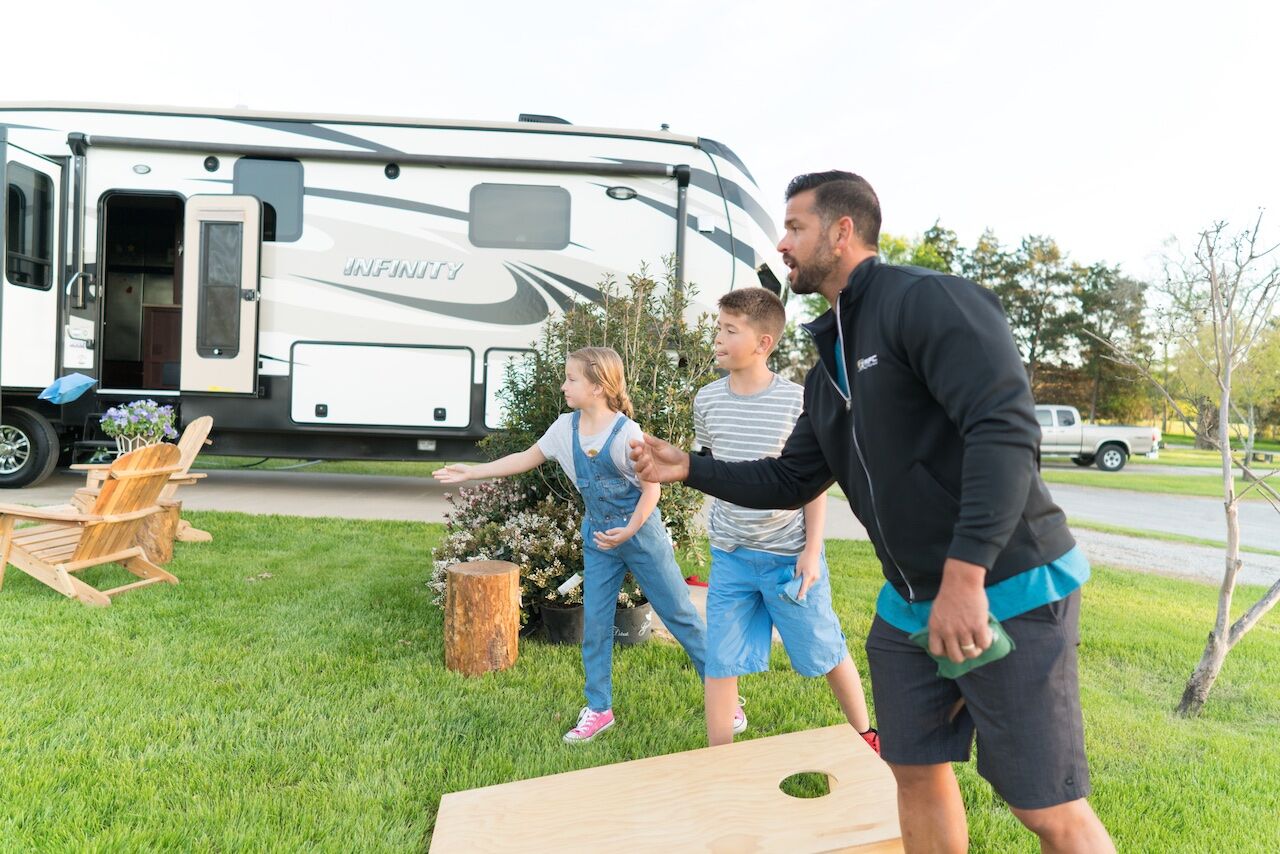
Photo: Go RVing
While the kids are little, we stay within a four-hour driving radius, and we’ve found dozens of campgrounds and other adventure spots not far from home. Staying close means you can return for weekend sports or activities if needed, which makes it easy to incorporate trips into your regular life.
Traveling, especially with four little kids, can be an ordeal — from herding the kids around the airport to making sure no one left anything behind on the plane. An RV makes it easy to travel since we can keep everything we need stored comfortably, aka we aren’t dragging around countless bags. You only need to pack and unpack one time.
Tip: Owning the RV relieves any pressure if trips need to be changed or canceled. It’s simple to just try the trip at a later time, no need to wait on the phone to cancel flights. Many campgrounds offer free date changes, and even if you have to cancel, there’s usually a minimal fee. This flexibility is essential for kids who get sick, have sports games, or if we just get too overwhelmed during the work week to pack up on Friday.
4. Nature is irresistible to kids — as it should be.
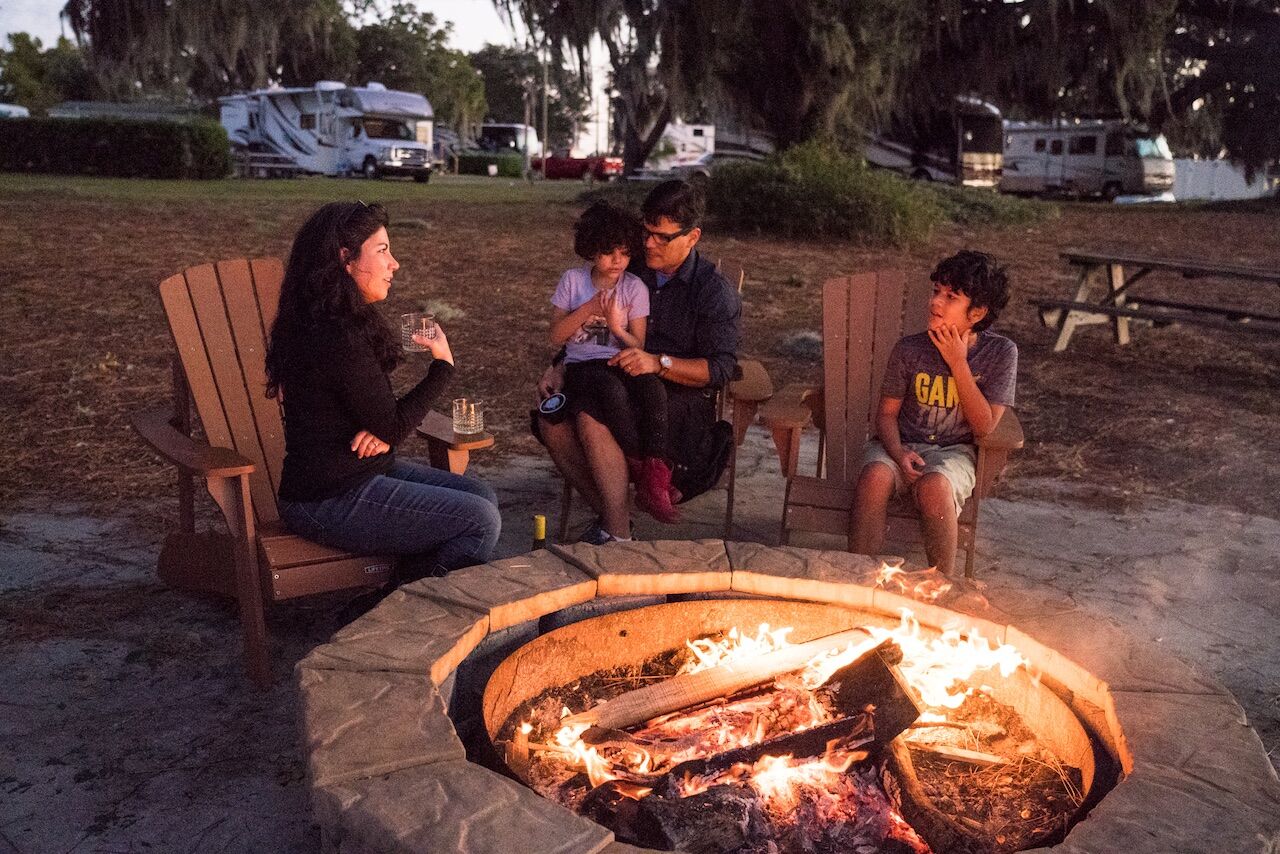
Photo: Go RVing
The minute the RV doors fly open at a new campground, the kids head straight for the woods. Nature is a ready-made playground for kids, and they learn something new every time, from going fishing to learning about bat houses along camping trails. In fact, it’s been found that nature-based learning can help improve a child’s critical thinking skills. As parents, we’re more relaxed and enjoy exploring nature alongside them.
Tip: Choose campgrounds with small trails attached, or ones right on the water for the most fun. Some even offer mini nature preserves, showing bugs and critters from the area in a mini-museum setting.
5. They’ll realize they’re a team again.
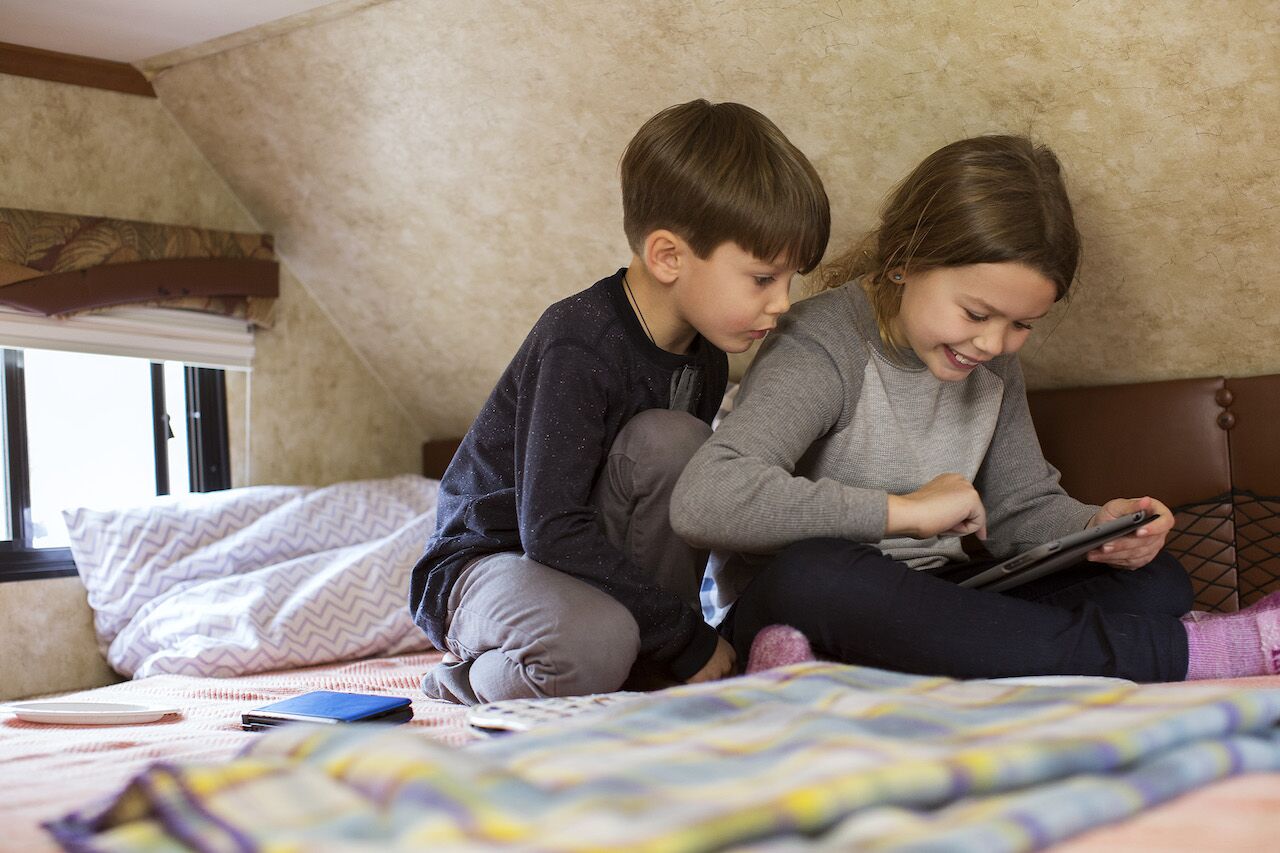
Photo: Go RVing
Four brothers in a small space leads to some bickering — but also some pulling together for teamwork. RVing has given us family bonding that doesn’t happen when neighbors, other family members, friends, school activities, and more are in the picture. By isolating the family unit, we turn to each other for entertainment and help.
My kids even take it upon themselves to help my husband unhitch our camper when we arrive at a campsite and sweep it out at the end of an outing. This involvement and “buy-in” in the process has made RVing feel like a true team activity, rather than just a fun concept where the adults do all the work and the kids just enjoy.
Tip: As great as it is to be a team, we still need our personal space from time to time. I suggest opting for an RV with a bunk room, so you can close the door and separate kids from each other as needed (this especially helped when they were babies).
Our RV has played an important role in my family. It has become a memory-maker, an adventure-deliverer, and a teacher for lessons about life and nature. Once your family tries an RV, I promise, there’s no looking back.
